
|
|
||
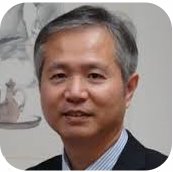 |
Prof. Stephen J. H. Yang 教育部資訊及科技教育司長, 臺灣 中央大學, 臺灣 |
|
|
MOOCs in Taiwan In this talk, I will address the reason that MOOCs arouse interests in MOE (The Ministry of Education), and the main mission and purpose of MOOCs in Taiwan, as well as MOOCs mean to the future of education in Taiwan. Taiwan’s MOOCs movement has been developed in two directions, one is led by MOE’s MOOCs project, a 4-year government-funding project; the other is inspired by volunteers who come from various universities, high schools, and private sectors. Taiwan has very strong research activities of digital learning, and now it is the right time that MOOCs project may benefit from the achievements of previous digital learning activities. My personal thought of Taiwan’s MOOCs movement should cover from K12 to higher education to life-long learning, and to enterprise learning as well. I consider MOOCs will reform or even revolutionize Taiwan’s education by enabling Taiwan’s Chinese courses on the world’s landscape, and improving pedagogical methods and structures.
Prof. Stephen J.H. Yang is the Director of Department of Information and Technology Education, Ministry of Education, Taiwan; he is also the Distinguished Professor of Computer Science & Information Engineering,National Central University, Taiwan. Dr. Yang received his PhD degree in Electrical Engineering & Computer Science from the University of Illinois at Chicago in 1995. Dr. Yang has published over 80 journal papers, and received the 2010 outstanding research award from National Science Council, Taiwan. His research interests include creative learning, 3D virtual worlds, App software, and cloud services. Dr. Yang is very active in academic services. He is currently the Editors-in-Chief of the International Journal of Knowledge Management & E-Learning, and the Associate Editor of the International Journal of Systems and Service-Oriented Engineering. Dr. Yang also served as the Program Co-Chair of APTEL 2011, ICCE 2010, TELearn 2009, ICCE 2009, IEEE SUTC2008, ICCE 2008, IEEE ISM2008, SDPS 2008, IEEE W2ME2007, IEEE CAUL2006, and IEEE MSE2003. |
||
|
|
||
 |
Dr. Nick Rushby British Journal of Educational Technology(BJET) 主編, 英國 Conation Technologies Limited 執行長 |
|
|
What topics are important in learning technology? Every two years BJET carries out an international survey to explore the trends and issues that learning technologists across the world think are important. Invitations to respond are sent to those who have submitted their work to BJET, and to members of various forums in Europe, North America and other parts of the world. It includes both those working in the academic environment and those whose primary activity is in training. The open and distance learning community are well represented. The survey asks the respondents to identify the top issues in each of a number of areas that they think will be most important over the coming year. By comparing the results of successive surveys we can get an impression of the trends over the past few years. If we asked the same people what areas they were currently researching we would doubtless get a rather different set of answers. And if we looked at what they had published over the past year, this would give us another view of the field. The survey was carried out during December 2013 and January 2014 and this presentation will be the first opportunity to hear and discuss the results.
Dr. Nick Rushby has been working in the area of educational and training technology for over 43 years. Following a first degree in Electronic Engineering, he gained his postgraduate Diploma from Imperial College in Computer Science, specialising in artificial intelligence applications in computer assisted learning. During his career he has coordinated projects for the National Development Programme in Computer Assisted Learning, directed an international information centre for the use of computers in education and training, and led multimedia training activities for PA Consulting Group. Nick is particularly interested in training for the rail and motorsport industries. He co-founded the training consultancy Conation Technologies in September 2001. Nick Rushby is the author and editor of a number of books and papers on learning technology. In the past he has edited Programmed Learning and Educational Technology, Interactive Learning International and currently edits the British Journal of Education Technology. His current major project is co-editing, with Dan Surry, the Wiley Handbook of Learning Technology which is to be published in early 2015. |
||
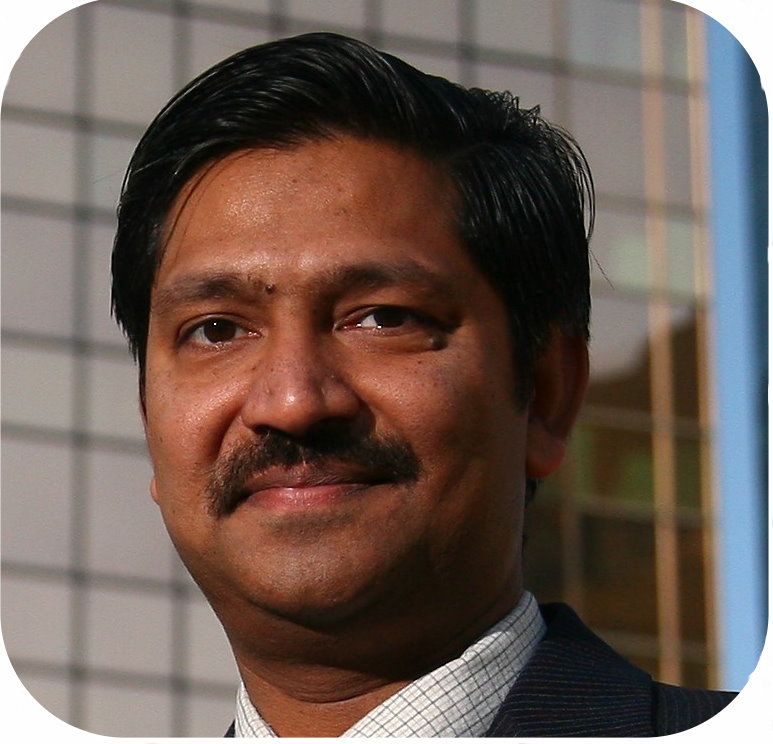 |
Prof. Kinshuk Athabasca 大學, 加拿大 |
|
|
Improving Learner Engagement/Retention Through Technology Online learning has emerged as a mainstream phenomenon in education sector and every academic institution has embraced it in some form and shape. While online learning approaches have opened up new pathways for learning, success of students requires consideration of various nuances that make it different from traditional face to face interactions. This talk will explore those differences and will discuss solutions for effective learning using various best practice examples. In particular, learner empowerment in the learning process will be explored in the context of constructivist learning that has been proven to be effective in typical online learning scenarios.
Prof. Kinshuk is Associate Dean of Faculty of Science and Technology, and Full Professor in the School of Computing and Information Systems at Athabasca University, Canada. He also holds the NSERC/iCORE/Xerox/Markin Industrial Research Chair for Adaptivity and Personalization in Informatics, funded by the Government of Canada, Government of Alberta, and by industries. He earned his PhD from De Montfort University, United Kingdom. His work has been dedicated to advancing research on the innovative paradigms, architectures and implementations of online and distance learning systems for individualized and adaptive learning in increasingly global environments. Areas of his research interests include Adaptive and personalized learning; learning analytics; learning technologies; mobile, ubiquitous and location aware learning systems; cognitive profiling; and, interactive technologies. With more than 390 research publications in refereed journals, international refereed conferences and book chapters, he is frequently invited as keynote or principal speaker in international conferences (28 in past five years) and visiting professor around the world (18 in the past five years in Chile, China, Hong Kong, Finland, Italy, Japan, and Taiwan). He has been twice awarded the prestigious fellowship of Japan Society for the Promotion of Science (2008 and 2013). He has also been invited as guest editor of 9 special issues of international journals in the past five years, and continues to serve on a large number of editorial boards of prestigious journals and program committees of international conferences. He has also served on review panels for grants for the governmental funding agencies of various countries, including the European Commission, Austria, Canada, Hong Kong, Israel, Italy, the Netherlands, Qatar, Taiwan and the United States. He also has a successful record of procuring external funding over 11 million Canadian dollars as principal and co-principal investigator. In his on-going sustained professional activities, he has initiated professional movements at international and national levels. At the international level, he is Founding Chair of IEEE Technical Committee on Learning Technologies, and Founding Editor of the Educational Technology & Society Journal (SSCI indexed with Impact Factor of 1.171 according to Thomson Scientific 2012 Journal Citations Report). At the national level, he is Founding Chair of the New Zealand Chapter of ACM SIG on Computer-Human Interaction, and Past President of the Distance Education Association of New Zealand. |
||
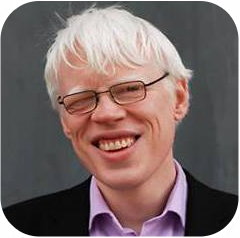 |
Prof. Frode Eika Sandnes Oslo and Akershus 大學 應用科學學院, 挪威 |
|
|
Making e-learning accessible to all E-learning technology has brought education to a wider range of individuals irrespective of time and place, life-phase, cultural, economic and social status. However, even the best e-learning content is useless if it is physically inaccessible to students. This presentation illustrates common barriers encountered by certain student groups. Best practices for how to realize web-based e-learning platforms and contents, specifically according to the W3C WCAG2.0 guidelines will be discussed as well as advice on how to make content in common file-formats accessible to larger groups of students. Finally, the preparation of accessible multimedia content will be covered.
Prof. Frode Eika Sandnes received a B.Sc. in computer science from the University of Newcastle upon Tyne, U.K., and a Ph.D. in computer science from the University of Reading, U.K. He is currently pro-rector for Research and internationalization at Oslo and Akershus University College of Applied Sciences in Norway and a Professor in the Institute of Computer Science, Faculty of Technology, Art and Design. His research interests include human computer interaction generally and universal design specifically. Dr. Sandnes has been instrumental in the establishment of the first master specialization in Norway that addresses design for all. He is an editorial member of several journals and he was involved in the translation of W3C WCAG2.0 guidelines into Norwegian. He has also hosted and been involved in the organization of numerous conferences and served on the board of the usability special interest group of the Norwegian Computer Society. |
||
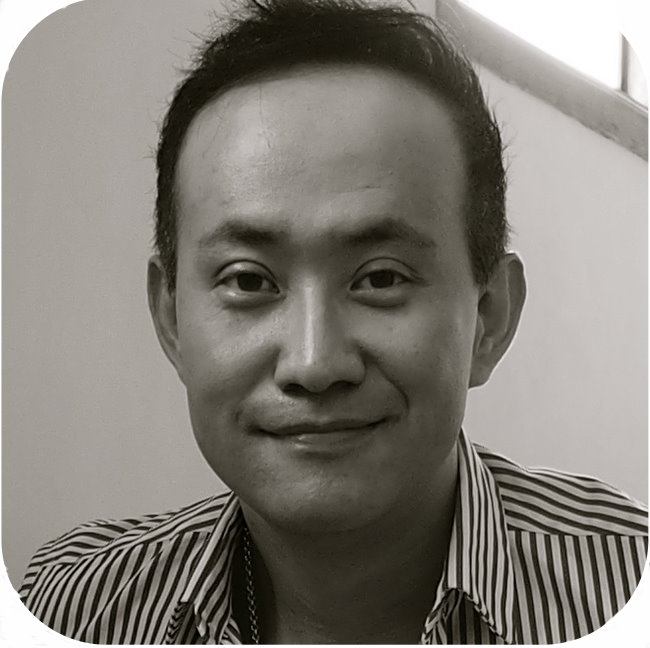 |
Prof. Bryan Minghui BI 北京大學, 中國 |
|
|
The Design of Art Courses and the Art Behind Course Design–Using the Example of Peking University’s Moocs “Western Music in the 20th Century” Living in a digital age where online education has become so widespread, two technical problems have drawn the attention of global educators. Firstly, how should Moocs courses be effectively developed and structured so as to align with the learning needs and characteristics of students and at the same time maximize the irreplaceable advantages of online education techniques. Secondly, how to base the design of music and art courses based on the Moocs curriculum-based learning model. This would unleash the greatest potential of micro-lesson video classes in the whole learning process, maintain high levels of focus amongst leaners, promote effective online learning habits, and cultivate full respect for the characteristics of music and artistic disciplines. design courses in creative thinking, so the effective integration of teaching resources, make learning promoted spiritual and artistic cultivation of new vehicle .By designing courses through creative thinking, teaching resources can be effectively integrated, allowing learning as a new channel for the cultivation of the mind and the appreciation of the arts. This paper thus aims to discuss two issues. Basing on the execution and exploration of Peking University’s Moocs “Western music in the 20th century ,”, it aims to review and evaluate the successes and weaknesses in the following aspects: (1) team construction, (2) micro-class video design, (3) teaching management, (4) Interdisciplinary method, (5) art style issue. From this reflection, the paper hopes to seek improvements for the future, and share the results of new attempt in designing another online courses recently.
Prof. Bryan Minghui BI, PhD (Musicology, Central Conservatory of Music), Post-PhD (Fudan University), associate professor at Peking University, School of Arts since 2007. He firmly believes in teaching beyond the professional field of music and advocates cross faculty learning. His area of research includes the history of music, musical aesthetics, anthropology of music, film music, music hearing and performance techniques etc. He has also been involved in lecturing and sharing overseas, as well as in the organization of various activities related to music. Some of his works include Chinese Characteristics in Western Music in the 20th Century (Shanghai Conservatory of Music Press, Shanghai, 2007), The Study on John Cage’s Music Aesthetics (Central Conservatory of Music Press, 2011), Enjoying the Music of L. V. Beethoven (Anhui Wenyi Publishing House, 2011) etc, and the courses offered by him include The Study on Culture and Music in Cross Discipline Issues, The Study on Film Music, The History of Music Instruments, The Source Reading on Musicology, The Study onFilm Music in Masterpieces, The Enjoyment of Music, Western Music in the 20th Century, The Study on Traditional Chinese Music (English), Piano Training Minor, etc. Prof. BI was awarded the Chinese Outstanding Post Doctorate, Peking University Outstanding Teaching Award, Peking University Most Outstanding Class Tutor Award, the first prize of the First National Universities Video Class Teaching Competition, and came in first for both the Peking University Young Teachers’ Education Skills Display Competition and Peking Young Teachers’ Education Skills Competition. Currently, he is working on textbooks and research works like 20th Century Western Music, Film Music, Chinese Traditional Music (English) etc. Prof. BI became voluntary director at the Peking University Chinese Music Institute (previously known as the Society for Di and Xiao) in spring of 2009, and has been their teacher mentor and conductor since then. In helping the institute with its campus services in academic, public-welfare and musicianship development activities, Prof. BI has successively participated inconcerts including Vibrating of the Heartstring, Sounds of the Southwest, Exultation: the Fifth Anniversary Celebration of the Society of Di and Xiao, Radiant with Happiness and Joy, Music and Joy in Chemistry in celebration of the international year of chemistry 2011, The Night of Beijing Forum 2011, Confluence of Times and Spaces: Joint Concert of PKUCMI and NTUCO, The Sound of PKUCMI in Reid Concert Hall, The Sound of China in Canongate Kirk, Edinburgh, Scotland, 2012,and 115 Anniversary Concert of Peking University 2013. In 2012, the routine campus activities of PKUCMI has been granted as a selective course in Peking University named as “Theory and Practice of Chinese Music”. Meanwhile, the institute was also awarded the Innovation Award, the highest award in Peking University for students’ campus activities. |
||
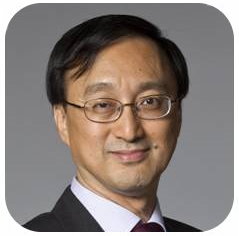 |
Prof. Yue Kee WONG 副執行長, Learning Services | Office of the President 新躍大學, 新加坡 |
|
|
eContent Strategy – Digital Choices The current generation of students are digital natives, and they are most comfortable with accessing learning materials in digital formats especially through their mobile devices. SIM University has embarked on a digital content strategy that involves equipping our students with eTextbooks and eStudyGuides for use on their mobile devices, notebooks and desktops. Today we have over 100 courses using eTextbooks and eStudyGuides. Our aim is to have at least 50% of our courses provided in this manner by 2015. As we embarked on this eContent strategy, we were guided by our principal aim of providing a better learning experience for our students. In implementation, however, we were facing different digital and design choices as well as some unfamiliar issues. These include: DRM, eBook platforms, working with publishers, copyrights, as well as other production and distribution choices. These choices eventually dictate how our digital future would look like for our students. In this session we will look at some of the challenges faced by SIM University as we move forward in our digitization effort. This session is useful for Administrators and Directors of Teaching and Learning who may be tasked with implementing a digital content strategy for their enterprise.
Prof. Yue Kee WONG is the Vice President for Learning Services at SIM University (UniSIM), Singapore. In this appointment he has responsibility for the direction of teaching and learning services at the University, and also for various initiatives for eLearning. He oversees the cluster on Learning Services which includes content production, learning systems and applications, as well as the Center for Teaching and Learning. A Colombo Plan Scholar, he completed his graduate studies in the US with a MA (Decision Sciences) from the Wharton School, University of Pennsylvania, and a PhD (Information Systems) from the University of Michigan (Ann Arbor). He has held academic appointments at the National University of Singapore and the Singapore Management University before joining UniSIM in 2011. Dr Wong is active in the development of eLearning strategies at the various Universities where he has held various administrative appointments. |
||
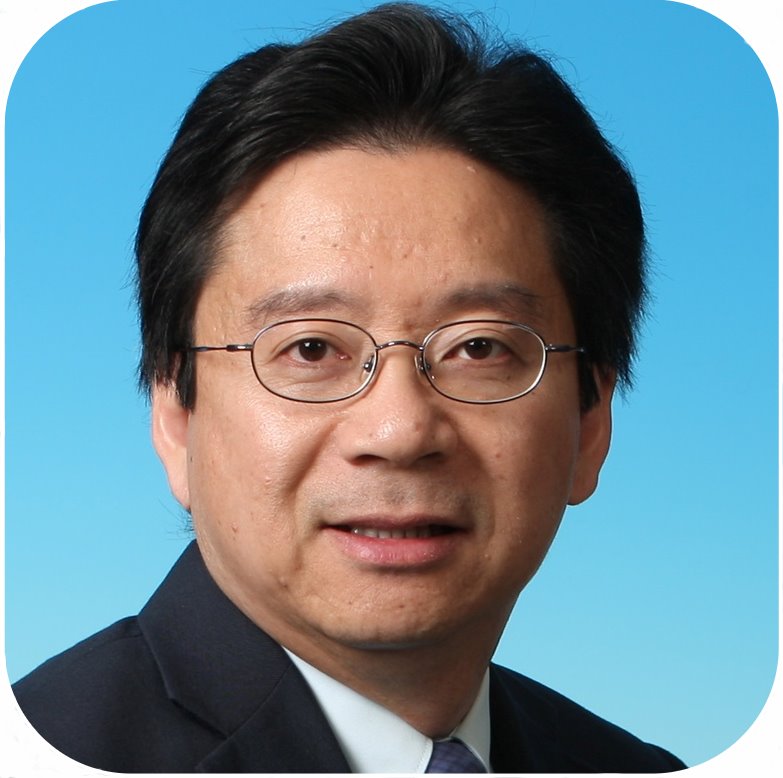 |
Prof. Ting Chuen Pong 計算器科學及工程學系 香港科技大學(HKUST), 香港 |
|
|
MOOC as a Catalyst for Enhancing Teaching and Learning In recent years, with a better understanding of the learning process, education has gone through a paradigm shift from teacher-centered to learner-centered pedagogy. Recent developments in information and communication technologies have provided easy access to high quality digital learning resources. Advances in mobile and wireless technologies have created ubiquitous learning environments that allow learning to be carried out anywhere, anytime using mobile devices. The convergence of these new pedagogical and technological developments has led to new approaches in the delivery of teaching and learning including blended learning, flipped courses and Massive Open Online Course (MOOC). In this talk, I will discuss how MOOC could be used to enhance learning experience in both residential and online education. I will also share our experience in the launching of a blended learning initiative at HKUST and my own experience in using the flipped classroom approach for a course that I am currently teaching.
Prof. Ting Chuen Pong is currently a Professor of Computer Science and a Senior Advisor to the Executive Vice-President & Provost at HKUST. He is one of the founding faculty members of HKUST, where he served as the Associate Vice-President for Academic Affairs, Associate Dean of Engineering and Director of the Sino Software Research Institute. He also served as an Academic Research Adviser for the Hong Kong University Grants Committee (UGC) from 2010 to 2012. Before joining HKUST, he was an Associate Professor of Computer Science at the University of Minnesota – Minneapolis in the US. He received his PhD in Computer Science from Virginia Polytechnic Institute and State University in the US. He is a recipient of the HKUST Excellence in Teaching Innovation Award in 2001. Professor Pong’s research interests include computer vision, multimedia computing and IT in Education. |
||
 |
Mr. Karl Engkvist 副總裁, Business Development Pearson Asia Pacific
|
|
|
Efficacy In Action – Pearson Aligns with Student Outcomes In 2013, Pearson jointly published An Avalanche Is Coming, describing the impact of the shifting landscape of higher education around the world. Examining trends such as globalisation and the growth of educational technology, increasing competition for students and research dollars, freely available high quality educational content, and non-academic providers encroaching on traditional universities’ territory, the publication drove home the point that change is coming at a faster pace than most universities have previously encountered. Since that time, Pearson CEO John Fallon publicly committed that by 2018 Pearson products will be measured by their ‘efficacy’ as well as by more traditional measures of commercial success. Pearson has defined its Efficacy Framework to be a set of tools used to assess if the conditions are in place for an education program to deliver its promised learning outcomes. The results of these product assessments will be shared publicly, and such openness will also apply to Pearson’s software and API’s. “What we hope is the efficacy framework is owned and shared widely,” Fallon said in an interview with Edsurge. “And that [other practitioners] will shape it as we go.” Just as doctors seek specific outcomes when treating patients, education technologies must also seek specific learning outcomes. During this session, we will present on a number of initiatives designed to support universities during this transitional phase. Other than updates on OpenClass (our free, hosted, self-service learning environment), we will also discuss the recent addition of Pearson Collections. Designed to enable instructors to search and curate materials from a broad and deep repository of resources, Pearson Collections provides access to information gathered from Pearson, other publishers, the public domain, and content licensed under Open Educational Resources – all of which are available digitally, allowing students to access it anytime and anywhere they have internet access. Additionally, we will demonstrate the significant enhancements and availability of the MyLabs category of e-learning content, which now has more than 100 titles, and our experiences in course redesign for the new era of online learning. Each of these initiatives – from our broad-based commitment to Efficacy to the very specific use of content for particular courses – is designed to improve learner outcomes. We eagerly await feedback from the leading universities of Asia Pacific.
Mr. Karl Engkvist is the Senior Vice President of Business Development for Pearson Asia Pacific. During the course of a 20-year career in education, Karl has held leadership roles in education services pioneer The Princeton Review and at education technology innovator Blackboard Inc. At the Princeton Review in the 1990s, he helped to introduce enhanced learning technologies to thousands of students preparing for high-stakes tests. While at Blackboard, he worked with universities throughout North America, Europe, and Asia, including the three years he spent living in Beijing as COO of a joint venture with a spin-off from China’s Ministry of Education. Unique experiences have included working with in Iceland and Tibet with their own Ministries of Education. Today he lives in Hong Kong and leads Pearson’s efforts to incorporate digital learning and other emerging educational models across the company’s many business lines. He graduated from Dartmouth College with a degree in Russian History. |
||

